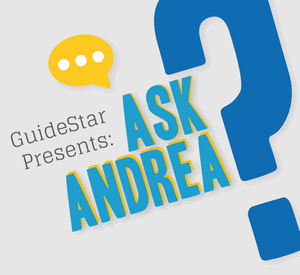Are you afraid to ask people for things because you dread the possibility of hearing “no?”
If so, why?
Does hearing “no” feel like a personal rejection — as though the other person is saying that you aren’t important or worthy? And if you feel that way, do you also have trouble saying “No” out of concern that you’ll hurt someone’s feelings?
If you’ve answered “Yes” to either of these questions, think again! You’re short-changing yourself and unnecessarily limiting your opportunities.
The fact is that the ability to say “No” and the ability to hear “No” without hurt feelings are two very important and very related skills.
In today’s post we’ll talk about hearing “No.” But being able to say “No” in a constructive way is just as important. In fact, though we often shy away hearing and saying “No,” it can be a gateway to unexpected Win-Win situations.
The Ideal NO: A Gift of Clarity
When someone says “no” to you, remember that there’s a big difference between “No, I don’t want/have time to do that” and “No, you’re not important enough to me for me to do that.” In fact, confusing the two is downright foolish!
“No” reflects a personal decision shaped by the context of the decider’s life.
When someone says “No” to a request, they are doing so for reasons that have everything to do with themselves and where they are in their lives — and little to nothing to do with you.
Looked at that way, “No” is a gift to be treasured for its simple clarity, not an offense to be feared.
The problem is not that people say “No.” The problem is that they — that we — don’t say “no” often enough!
When you ask for something and the answer is “no,” you can move on. But when the person you’ve asked hems and haws and doesn’t have the courage to say “no,” you’re stuck in limbo, and don’t know how to proceed.
And it’s even worse when they say “yes” in such a way that you know the request is a true inconvenience. Or when they say “yes” and then don’t follow through.
Give People the Permission to Say NO
Want to ask someone for something?
Help the process along by giving the other person clear permission to say “no.” That way, if they say “Yes” you can rest easy that they mean it.
Let’s start celebrating “no” instead of fearing it. Let’s see “no” as helping to define the way forward for both the asker and the decider.
Just like its partner “yes,” “no” offers welcome clarity. It’s simply a decision, not a personal rejection.
Thank people when they have the courage to say “No.”
The next time you ask for something and the person you’ve asked says, “No,” thank him or her for their direct response. At the same time, remind yourself that the decision is not a personal rejection, but rather a statement of where the other person is in her or his life at this moment.
How does it feel to hear “No.” this way? Let me know in the comments box below!

This is so true! I’d much rather get a “no” than an “we’ll get back to you” and all the awkward silence that follows.
Thanks Marc. If I had a nickel for every minute wasted by someone who
simply can’t say no and put off the decision instead, I’d be a wealthy
woman! And yes…that awkward silence of saying one thing and meaning
another. Yuck.
Yesterday, I asked my wonderful editor, Dawn, if she would join me at a conference in California in September. It was a big ask of time and money. At the end of the email, I wrote this “If you don’t want to/can’t come, that’ll be fine too. So don’t fret about it.” I realized afterwards that I had given her permission to say “no,” just like I suggest in this post. What happened? She said “yes!”
I appreciate it when people say no. As someone who works with multiple clients and volunteers, a no from a volunteer can mean the difference between me spending time following up and trying to engage someone or working with someone truly committed to a cause. A client saying no can speed up a project being complete and best of all, help both of us gain clarity about our work together. No puts puts people in the space of working together in yes, even if it isn’t you being worked with.